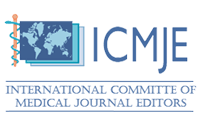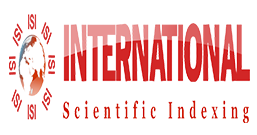Molecular diagnosis of inherited retinal diseases with non-specific clinical phenotypes using whole exome sequencing
Arpita Ghosh1*, Dipali Dhawan1, Khyati Chandratre1, Spandan Chaudhary1, Barkha Shah1, Srinivas Vudathala2 and Prashanth G. Bagali1
Affiliation
- 1Medical Genetics and Diagnostics Division, Xcelris Labs Ltd., Old Premchand Nagar Road, Opp. Satyagrah Chhavani, Bodakdev, Ahmedabad, India
- 2NGS Division, Xcelris Labs Ltd., Old Premchand Nagar Road, Opp. Satyagrah Chhavani, Bodakdev, Ahmedabad, India
Corresponding Author
Arpita Ghosh, Medical Genetics and Diagnostics Division, Xcelris Labs Ltd., Old Premchand Nagar Road, Opp: Satyagrah Chhavani, Bodakdev, Ahmedabad, India E-mail: arpita2001@gmail.com
Citation
Arpita, G., et al. Molecular diagnosis of inherited retinal diseases with non-specific clinical phenotypes using whole exome sequencing. (2016) Bioinfo Proteom Img Anal 2(2): 125- 127.
Copy rights
© 2016 Arpita, G. This is an Open access article distributed under the terms of Creative Commons Attribution 4.0 International License.
Keywords
Abstract
The inherited retinal disorders are very difficult to classify due to their progressive nature and similar clinical symptoms. In this report we have demonstrated differential diagnosis of retinal diseases that would otherwise not have been suspected based on the nonspecific clinical presentation in a patient of Western Asia origin. He was clinically diagnosed as Retinitis Pigmentosa. We observed two pathogenic mutations associated with Bietti crystalline dystrophy (BCD) and conerod dystrophy 13 (CORD13) respectively. Based on the Whole exome sequencing (WES) results, we demonstrated that patient carries mutation of CYP4V2 gene, which might lead to BCD in autosomal homozygous recessive state. WES enabled the identification and differentiation of inherited retinal diseases, which otherwise would have been misdiagnosed. WES not only enhances our present understanding of genetic basis of retinal disorders but also provides insight to carry out further investigation for similar cases. Therefore, WES has very good clinical utility and clinical significance in the differential molecular diagnosis of genetic diseases.












